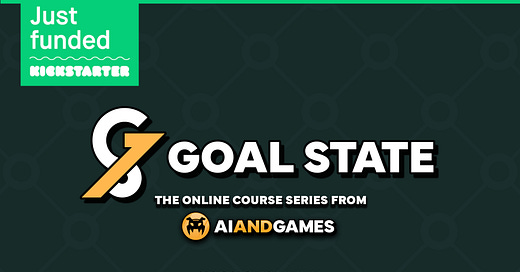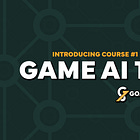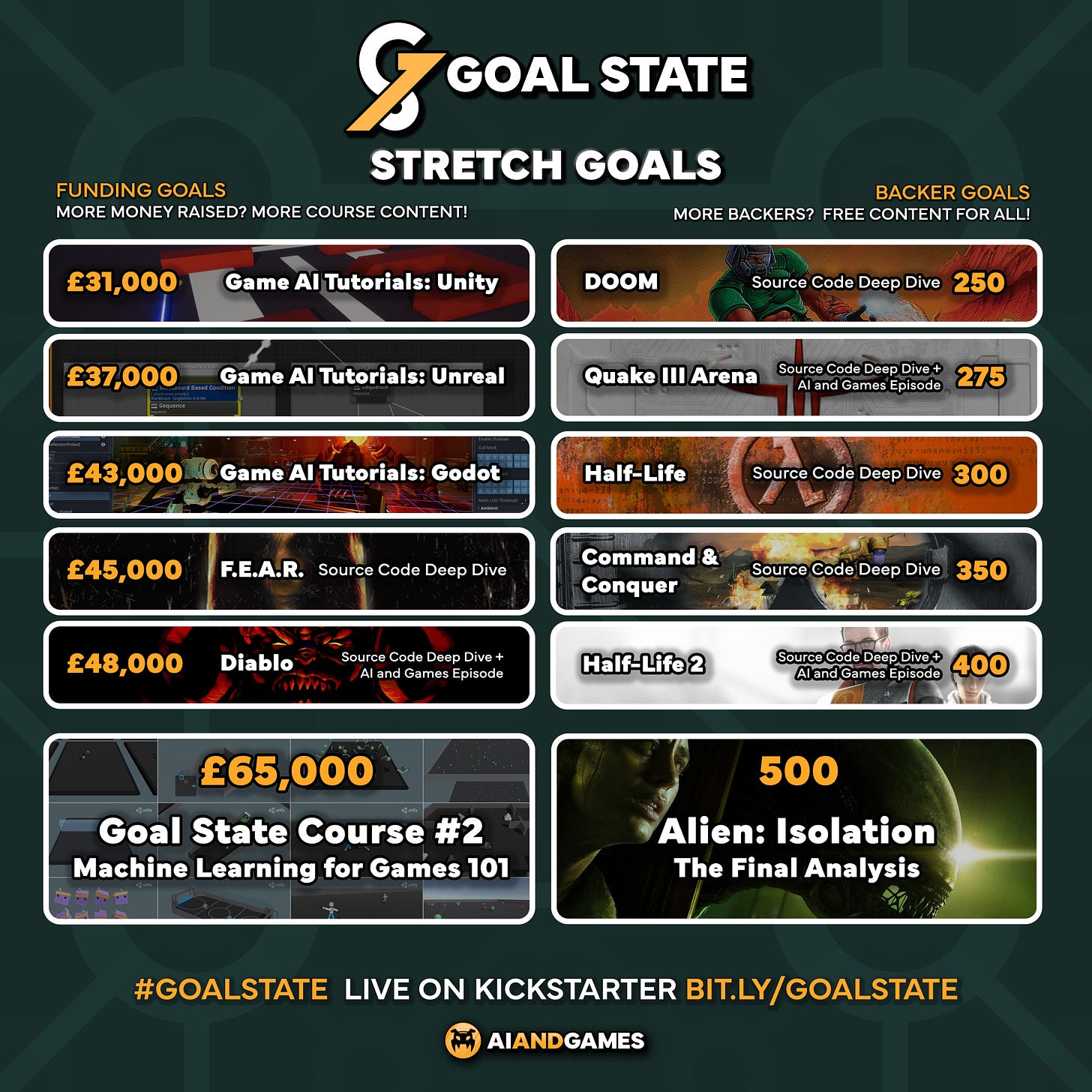The Goal State Kickstarter is Funded! Stretch goal season begins!
We raise £25K in 3 days, and now it's time to build on it some more!
Goal State went live on Kickstarter on November 15th, with the goal to raise over £25K to fund a new avenue of content and material from
. I’ve talked about it a lot in the past few months, but here is everything you need to know, and how to find out even more about it. I’m pleased to say first and foremost, that it is now funded, and we have plenty of stretch goals to hit in the coming weeks!Key Facts and Links
Where’s the Kickstarter at?
Linked to here: https://www.kickstarter.com/projects/aiandgames/goalstate
When does it go live?
3pm GMT on Friday 15th November.
How long does it run?
30 days. We close funding on 15th December 2024.
What’s the funding target?
To cover the first phase of the work - lectures for the Game AI 101 course - it’s £25,000.
This funding target is now met, and we’re in stretch goal season! Scroll down for more info!
What is Game AI 101?
It’s the first of several planned courses under the Goal State banner. It covers foundational knowledge in AI for games. You can find out more about it in the dedicated article here on Substack.
How can I support the Kickstarter?
You can visit the Kickstarter page for more information. But, I did provide a full breakdown of how the funding will work in a recent blog here on the AI and Games website.
What is Goal State?
After 10 years of making videos on the AI and Games YouTube channel, and almost one full year of writing the AI and Games Newsletter on Substack, I want to start building high-quality, deep dive educational materials on artificial intelligence for game development. Goal State is the brand under which all of my work will operate.
Why is it Called ‘Goal State’?
In classic AI literature, we refer to artificially intelligent systems as ‘agents’. And typically when we use AI to find solutions to problems, we feed it what is known as the ‘initial state’ (the current configuration of the problem), and the task is for it to reach one of the possible goal states that exist.
So if you think about pathfinding in a game, getting a character to reach its destination by manoeuvring around the map, would mean it has reached its goal state.
So Goal State is a pun of sorts, in that it’s all about satisfying our ambitions. I felt that would be a fitting name for a series of online courses designed to help people enter the world of AI for games.
Stretch Goals
The updated stretch goal documentation can be found at the link below, where we have both funding and backer goals lined up! But you can get the gist from the image above!
Thanks for reading, and a special thanks to all who support Goal State.









